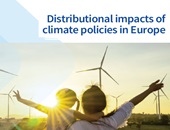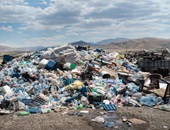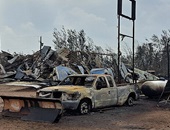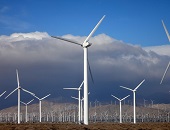The Case for CBAM
In 2003, a devastating heat wave in Europe killed an estimated 70,000 Europeans, many of them elderly people living alone. This, and a series of other extreme weather events, have persuaded many countries to take climate change seriously. The European Union enacted the carbon border adjustment mechanism (CBAM). It came into effect as of October 1, 2023, and is designed to account for the carbon cost of producing imported goods, with the ultimate aim of reducing greenhouse gas emissions. “I’m a huge fan of CBAM,” Catherine Wolfram, professor of economics at MIT Sloan, said, joking that the name sounded like something […]
Distributional consequences
Climate change marches on. To prepare for worse storms, droughts, and wildfires, the infrastructure must be improved. Governments have different ways to handle the costs of adapting to climate change. How will these additional costs be borne? “Transition to a carbon-neutral economy is at the top of the policy agenda around the globe,” said Moritz Kuhn, professor of economics at the University of Mannheim. Private households account for about two-thirds of carbon emissions. “Governments can introduce policies to speed up the adoption of green technologies,” he said, but the heterogeneity of consumption and carbon emissions could present problems. These will […]
Dirty Deals
“The global plastic waste trade is an environmental disaster hiding in plain sight, fuelling organised crime, working conditions that amount to human rights violations and devastation to human health and the environment.” This is according to a report released on November 5, 2024, by the Environmental Investigation Agency (EIA) in Britain. ♠️ Click here to access “Dirty Deals Part 2″ from the EIA website.
State of Wildfires
The potential for burning grows every month under climate change, as drought conditions increase in frequency and intensity. The dangers change unevenly, country by country and region by region. Ultimately, the operational risk of wildfires adds to country risk. But how bad is the current situation? Has anyone tried to benchmark, or systematically quantify, the events and the damages? An effort to benchmark the state of destruction has begun in a climate centre in England, the Tyndall Centre for Climate Change Research at the University of East Anglia in Britain. The findings of an expert panel were released in the inaugural report, “State of Wildfires 2023–2024,” […]
AI, ESG, and 1.5 Degrees
Moving to a sustainable future on a global scale is challenging. The United Nations Environment Program (UNEP) was founded to encourage member nations to develop sustainability agendas. Through their Financial Initiative (UNEPFI), the UN plans to harness the power of the financial system to this end as well. How can banks, insurers, and investors help accelerate sustainable development? How can they manage transition risk, namely the collection of non-physical risks associated with the transition to environmental sustainability? Does artificial intelligence (AI) have any role to play? In 2015, the Financial Stability Board created the Task Force on Climate Related Financial […]
Geopolitical Risks
Many conflicts and potential conflicts disturb various parts of the world in the post-pandemic era. For those who must manage various sources of risk in a portfolio, what are the biggest threats on the horizon? Is there a common thread among several sources of conflict? The Global Association of Risk Professionals (GARP) provides a series of podcasts featuring specialists discussing their area of risk and we at TextMedic enjoy listening in. This is the first podcast we have summarized in our blog, and for starters we delve into country risk. On April 14, 2024, Daniel Wagner, CEO of Country Risk […]
Decarb Economics 101
To mitigate the consequences of climate change, the world requires international coordination. In 2015, the Paris Agreement was signed by 195 nations. Its long-term temperature goal is to keep the rise in mean global temperature to well below 2°C (3.6 °F) above pre-industrial levels, and preferably limit the increase to 1.5 °C (2.7 °F), which would reduce the worst effects of climate change. Many countries are developing policies to get themselves on a path toward achieving the agreed-upon 1.5 °C goal. Although present progress may seem piecemeal, in the words of a Chinese proverb, “A great journey begins with a single step.” The figure below […]
World Energy Outlook
On October 24, 2023, the International Energy Agency (IEA) released its annual report, World Energy Outlook (WEO), to an international audience. The agency states that the energy world “remains fragile but has effective ways to improve energy security and tackle emissions.” Agency analysts looked at how close the countries of the world are to meeting the objectives of the Net Zero Emissions by 2050 (NZE) Scenario, which limits global warming to 1.5 °C, a goal signed by many countries and often referred to as the Paris Agreement. [As of March 2021, 194 states and the European Union have signed the […]
The Greenium
Does the average household want to invest in climate-friendly assets? If so, what proportion of assets are earmarked for green investments? What kinds of assets (equity or fixed income) are preferred? “Green investments are popular, but only about one-third of German households have some kind of green account,” said Monika Piazzesi, Professor of Economics at Stanford University. She was speaking at a webinar titled “Household Climate Finance: Theory and Survey Data on Safe and Risky Green Assets,” held on September 7, 2023, as part of the Virtual Seminar on Climate Economics sponsored by the Federal Reserve Bank of San Francisco (FRBSF). Her […]
The Meerkat Way
Given that climate change is the biggest economic upheaval of our age, what can risk professionals do? What, exactly, is meant by a “net-zero transition,” and why does each organization need a transition plan to reach it? How should risk professionals get started? On May 23, 2023, the membership of the Global Association of Risk Professionals (GARP) was invited to a one-hour webinar titled “Net-Zero Transition Plans” that promised to answer these questions and more. Tony Rooke, Executive Director and Head of Transition Finance at the Glasgow Financial Alliance for Net Zero (GFANZ), delivered the webinar. GFANZ is a global […]










